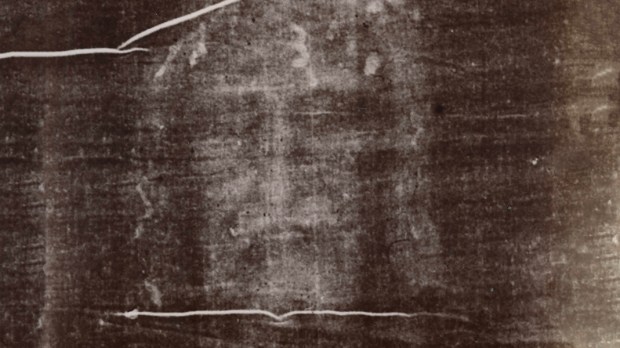Lenten Campaign 2025
This content is free of charge, as are all our articles.
Support us with a donation that is tax-deductible and enable us to continue to reach millions of readers.
The Museum of the Bible in Washington, D.C., hopes to open a major exhibition on the Shroud of Turin, believed by many to be the burial cloth of Christ, in January 2021.
The news was announced at the National Catholic Prayer Breakfast held in Washington, D.C., last month, when the Catholic audience was told that the non-sectarian museum founded by the Green family, owners of Hobby Lobby stores, and opened in Washington in 2017 plans to embark on a project near and dear to many Catholic hearts.
“The Museum of the Bible is excited to propose a groundbreaking, high-tech, innovative exhibition about the Shroud of Turin with a mission to explore its history, mysteries, facets, and themes by utilizing state-of-the-art imaginative displays,” attendees were told at the breakfast.
The Shroud of Turin has been housed in the Cathedral of Turin since the 16th century, and has long been an object of veneration as well as the subject of controversy, pitting those who believe the cloth, which bears the negative image of a man, was the actual burial cloth of Jesus, and those who think it was an invention of the Middle Ages.
As Aleteia reported last month, photos taken by scientific photographer Vernon Miller as part of the Shroud of Turin Research Project can be viewed online at a new website, ShroudPhotos.
According to Catholic News Agency, scientific experiments conducted on the Shroud from 1977 to 1981 led researchers to conclude that “the shroud image is that of a real human form of a scourged, crucified man. It is not the product of an artist. The blood stains are composed of hemoglobin and also give a positive test for serum albumin. The image is an ongoing mystery and until further chemical studies are made, perhaps by this group of scientists, or perhaps by some scientists in the future, the problem remains unsolved.”
The project further concluded that:
“No pigments, paints, dyes or stains” were found on the shroud’s fibers, adding that “it is clear that there has been a direct contact of the Shroud with a body, which explains certain features such as scourge marks, as well as the blood. However, while this type of contact might explain some of the features of the torso, it is totally incapable of explaining the image of the face with the high resolution that has been amply demonstrated by photography.” “The scientific consensus is that the image was produced by something which resulted in oxidation, dehydration and conjugation of the polysaccharide structure of the microfibrils of the linen itself. Such changes can be duplicated in the laboratory by certain chemical and physical processes. A similar type of change in linen can be obtained by sulfuric acid or heat. However, there are no chemical or physical methods known which can account for the totality of the image, nor can any combination of physical, chemical, biological or medical circumstances explain the image adequately.”
The Vatican does not formally recognize the authenticity of the Shroud of Turin.
The Museum of the Bible is conducting a fundraising campaign to make the exhibition possible. Myra Kahn Adams, a columnist for Townhall, reports that $2 million will need to be raised.

